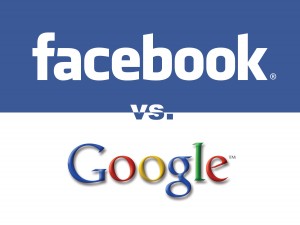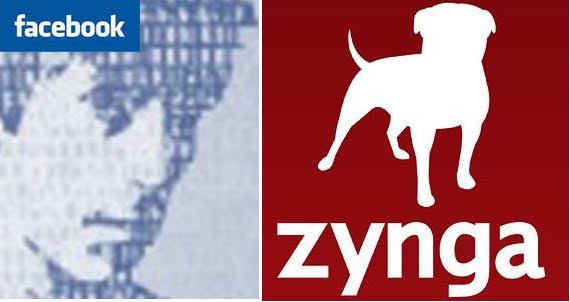华尔街日报:google将联手游戏开发者对抗facebook
谷歌正在同几家网络游戏开发商进行谈判,它打算开发一款范围更广的社交网络服务同Facebook抗衡。
知情人士称,谷歌一直在与顶尖开发商进行协商,希望它们能为谷歌正在开发的社交网络服务提供游戏。这些开发商包括Playdom、艺电旗下的Playfish和谷歌最近刚刚入股的社交游戏厂商Zynga Game Network。
目前还不清楚谷歌会在何时发布新游戏,因为最终计划尚未确定。但知情人士称,那些游戏将是谷歌正在开发的范围更广的社交网络服务的部分内容。
谷歌首席执行官施密特本周在接受采访时拒绝确认公司正在开发一款整合社交游戏的社交网络服务。当被问及谷歌的服务是否会类似于Facebook的服务时,施密特表示:“世界并不需要相同事物的简单复制。”
用户和广告开支正加速流向Facebook、Twitter等控制的社交网络领域。
消费者对社交游戏的兴趣与日俱增,Zynga的“虚拟农场”游戏的平均每月活跃用户数量已经超过6千万人,这无疑吸引了众多希望寻找新的增长来源的大厂商的关注。
沃尔特迪士尼周二宣布以5.632亿美元的价格收购Palydom,如果实现经营目标,它将再支付2亿美元。零售商GameStop已经同意收购网络游戏经销商Kongregate,但没有透露交易的价格。
迪士尼首席执行官Robert Iger周二在接受采访时称,在各自为政的媒体市场,社交游戏是争取消费者的有效手段。
社交游戏比那些在游戏机如微软Xbox 360或索尼PS3上玩的游戏要简单一些。消费者通过游戏与各自网络中的好友互动。开发商则通过广告或收费道具的方式盈利。
游戏开发商将它们通过出售游戏中的虚拟道具获得的收入的30%支付给Facebook。谷歌已经拥有一款名为Checkout的在线支付系统,从理论上来说,它可以通过该系统收取用户为平台上的社交游戏支付的费用。
Facebook发言人表示,公司不会就谷歌的游戏计划发表臆测性评论,但公司确实希望看到社交游戏市场呈现出百家争鸣的繁荣景象。
在中国和日本等国家,社交游戏市场的收入规模已达数十亿美元。据市场调研机构ThinkEquity估计,美国社交游戏市场2009年的收入为7亿美元,预计到2012年时这一数据将增长2倍。
谷歌在今年2月凭借Buzz进入了社交网络市场,这款产品可以将社交信息更新如图片和网络链接等引进Gmail服务,但这款产品同时也引发了用户对隐私信息保护问题的担忧。据知情人士称,谷歌正在开发的新社交网络服务将整合Buzz并进行扩展。
当被问及谷歌与Zynga的合作时,施密特表示:“我们还没有宣布这项合作的消息,但是我们今后肯定会与Zynga合作。”到目前为止,只有科技博客TechCrunch报道了谷歌与Zynga的合作,谷歌或Zynga尚未正式宣布这一消息。
从几年前开始,谷歌就允许第三方开发商为iGoolge服务开发基本的社交游戏。用户可以利用iGoolge定制谷歌主页和添加新功能。但是谷歌从未广泛推广过社交游戏。谷歌还拥有Orkut,这项社交网络服务在某些国家非常流行。
Facebook的迅猛发展以及它对谷歌的潜在威胁是目前技术行业和风投行业讨论的热门话题。
现在许多用户不仅仅利用谷歌搜索来查找内容和产品,他们还通过Facebook好友来寻找能够在网上购买的产品。而且Facebook的用户产生的内容通常都不在谷歌搜索引擎的搜索范围之内。
去年,几名前谷歌高管离开公司后加盟了Facebook。现在它拥有5亿用户,主要在自己的网站上销售广告,但是有传闻称,它可能会发布一个跨其他网站的广告网络。(据腾讯)
Google Inc. is in talks with several makers of popular online games as it seeks to develop a broader social-networking service that could compete with Facebook Inc., according to people familiar with the matter.
Google has been in discussions with top developers to offer their games on a new service it is building, these people said. Those developers include Playdom Inc., Electronic Arts Inc.’s Playfish and Zynga Game Network Inc.—a company in which Google recently took a financial stake, these people said.
It is unclear when Google may launch the new gaming offering and the plans aren’t finalized, but people briefed on the matter said the games would be part of broader social-networking initiative that is under development by the Mountain View, Calif., company.
In an interview this week, Google Chief Executive Eric Schmidt declined to confirm the development of a social-networking service that would incorporate social games. When asked if Google’s service might resemble Facebook’s, Mr. Schmidt said “the world doesn’t need a copy of the same thing.”
Google’s push into social games represents the latest attempt by the Web-search leader to capture users and advertising dollars that are increasingly flowing to social networking, an area dominated by Facebook, Twitter Inc. and others.
For social-game developers, a successful Google offering would mean they wouldn’t be so heavily dependent on Facebook, where the vast majority of users access the games. Consumers’ appetite for social games is booming— Zynga’s “Farmville” game has more than 60 million active monthly users—and that is attracting bigger players looking to tap new sources of growth. On Tuesday, Walt Disney Co. acquired Playdom for $563.2 million plus up to $200 million more if performance targets are reached. And retailer GameStop Corp. agreed to buy online game distributor Kongregate Inc. for an undisclosed amount.
Disney CEO Robert Iger said Tuesday in an interview that his company views social games as a way to reach consumers in a fragmented media landscape. “People are consuming product in new destinations, on new devices,” Mr. Iger said. “You’ve got to put your product on those devices.”
Social games are less complex than those played on consoles like Microsoft’s Xbox 360 or Sony PlayStation 3. Individuals use the games to interact with online friends in their networks. The developers make money through advertising and by offering users a way to pay for virtual goods in their games that could, for example, help them manage a virtual farm or defeat rival mobsters.
Game developers pay Facebook 30% of the earnings from virtual-good purchases in their games. Google already has an online payment mechanism called Checkout that, in theory, it could use to collect payments for social games on its platform.
A Facebook spokesman said the company wouldn’t speculate about Google’s initiative but said the company expected new social-networking efforts by others and “looks forward to seeing what others have to offer.”
In countries such as China and Japan, social games generate billions of dollars in revenue. In the U.S., social gaming was a $700 million market in 2009, according to estimates by ThinkEquity LLC, a research firm. That figure is supposed to triple by 2012, the firm said.
Google in February made a foray into social networking with its Buzz product, which brings social updates such as photos and Web links into Gmail, though the launch was marred by privacy concerns.
The social-networking service being considered would incorporate and go beyond Buzz, according to one person familiar with the matter.
When asked about Google’s partnership with Zynga, Mr. Schmidt said “we haven’t announced it” but “you can expect a partnership with Zynga” in the future. Google’s partnership with Zynga was reported earlier by the blog TechCrunch.
Google also owns Orkut, a social network service that is popular in some countries.
The growth of Facebook and its potential threat to Google is one of the hottest topics being discussed by technology executives and venture capitalists in the Bay Area.
Many users now rely on their friends on Facebook—not just Google—to discover content and products they can purchase on the Internet. And much of the content generated by users on Facebook is generally kept out of view of Google’s search engine.
Over the past year, several former Google executives who ran the company’s core advertising business left to work for Facebook. Facebook, now with over 500 million users, sells advertising on its own site. But speculation is growing that it could launch an advertising network across other sites, rivaling Google’s ad network AdSense.
Google’s Mr. Schmidt argued in an interview that Facebook is good for Google because it brings more users to the Internet, and “Facebook users use more Google products than any other users.”
Google for years has allowed developers to create basic social games for a service called iGoogle, which allows users to customize and add features to their Google.com home page. But the games haven’t been widely promoted and few have gained a large following.
Some media companies are increasingly targeting developers for acquisition. Last November, Electronic Arts paid $400 million for Playfish.
For Disney, the purchase of Playdom is its second foray into social games. Disney earlier this month acquired Tapulous Inc., a maker of music-related social games for mobile devices including iPhones.









































 闽公网安备35020302001549号
闽公网安备35020302001549号